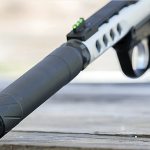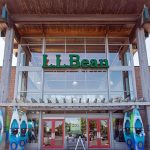Sales of the outdoor brand Marmot are on track to reach $170 million next year, or doubling their level in 2007, when Jarden Corp. acquired the company, Jarden Corp. CEO Jim Lillie said last week. Current plans call for double Marmot sales again by 2017.
“We're now going to double the double,” Lillie told investors June 27 during a presentation at the Oppenheimer Holdings Inc. Consumer Conference. “And so, you'd expect this trend to be about a $350 million growth opportunity in the coming three or four years.”
Marmot currently has 2 percent share in a $2 billion-a-year category, Lillie said.
While discussing Europe, Lillie disclosed Volkl and Coleman now generate about $268 million each in European sales.
JAH Outdoor Solutions segment, which owns the Volkl, Marker and K2 brands, controls about 17 percent of China’s market for skis, or about $3 million in annual sales. Jarden disclosed in February that it expects to sell $40-$50 million less in ski gear next winter as dealers cut back their orders of snow sports gear in the wake of the difficult 2011-12 season.
Lillie said sales at Coleman are “okay” in Germany and the United Kingdom, but off in Spain. The company’s recently launched tailgating business, which involves slapping NFL, NCAA and MLB logos on everything from folding chairs to crock pots and playing cards, is closing in on $35 million in annual sales.
JAH operations generated $435 million in positive cash flow in 2011, but Lillie thinks the company can increase that by up to $150 million in the next 24 months thanks to IT improvements that allow it a much more granular view of inventory levels. While the company’s financial statements indicate it has about 100 days of inventory on hand, JAH now knows that inventory of certain categories is much higher. Inventory of women’s lacrosse sticks, for instance, is running at about 380 days.
“I'm not expecting some huge run on the market in female lacrosse sticks,” said Lillie. “So, clearly, they're slop in the system. Our guys are focused on that.”
On the team side, Lillie said Rawlings is now producing about 10,000 football helmets a year and expects to produce as many as 25,000 in the next couple of years.















